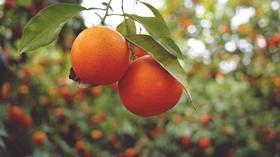
Following reports of lower than expected sales ahead of Christmas, Costa Group has announced detail of its performance in the six months to 30 December 2018.
Costa CEO, Harry Debney said the results were anticipated to be considerably lower because of the muted trading performance during December.
“The six-month financial period to December has delivered a lower profit number than expected. There were several contributing factors to this, some of which had been accounted for including bringing African Blue on to our balance sheet as a result of majority ownership, additional preharvest farming cost investment through our increased international footprint and an ‘off’ citrus season in terms of the biennial nature of the crop,” said Debney.
The company said it remains on track to meet medium to long term profit growth objectives, which incorporate its five core product categories as well as international development.
Revenue decreased in the produce segment by 4.3 per cent compared with the six months prior, and total transacted sales were at A$615.7m compared with A$620.3m in the first half of 2018.
Citrus
The biennial nature of citrus is said to have caused the 4.3 per cent dip in revenue for Costa’s produce department. Lower quality toward the tail end of the season was also to blame.
“Exports for the 2018 calendar season comprised 73 per cent of packed volume, with Japan being the largest market taking 40 per cent of total exports, followed by the US, New Zealand and China,” said Debney. “Exposure to the Korean market is expected to increase in 2019 as tariffs are further reduced under the Australia – Korea Free Trade Agreement.”
Avocados
Costa’s avocados also journeyed to Asia this year for the first season. The company said 60,000 trays of exports were initiated to markets in South East Asia, including Hong Kong, Singapore and Malaysia.
Domestic crop was mainly sourced from northern New South Wales, with some residual volume coming from Queensland. Central Queensland’s overlap with the end of Western Australia’s season resulted in a supply glut that lowered prices.
Berries
Strong production volumes for blueberries were also apparent at Costa’s Corindi farm in New South Wales but were offset by lower volumes from Queensland.
A new Arana premium variety attracted a 23 per cent premium on 200g packs at retail level and a double-digit premium at wholesale.
The company said raspberry contribution was disappointing.
Internationally, earnings from Costa’s Morocco, China and Americas-based operations are weighted to the first half of 2018, the company said.
Pre-harvest investment in Morocco and China through July-December decreased earnings which occur during the harvest period in the first half of the year.
“There has been a good early start to the blueberry harvest at the main Manlai farm with positive market reception reflected in premium pricing received for our large ‘jumbo’ berries,” said Debney.
The company said Driscoll’s US-based royalties produced continued revenue growth.
Tomato
Tomatoes also experienced an undesirable result with an excellent production of snacking varieties being met by weaker retail performance, resulting in more sales across the wholesale channel lowering price realisation. Truss production and pricing was also lower.
Costa will be showcasing a new truss variety in 2019 called Endeavour, which it said features enhanced yield, shelf life and disease resistance.
Mushroom
Mushrooms bucked the fluctuation trend and met financial targets for the period.
The recent higher cost of straw is expected to manifest over 2019 as Costa replenishes inventory stock. A new compost facility is also expected to have a positive impact and will operate from the fourth quarter of 2019.






No comments yet